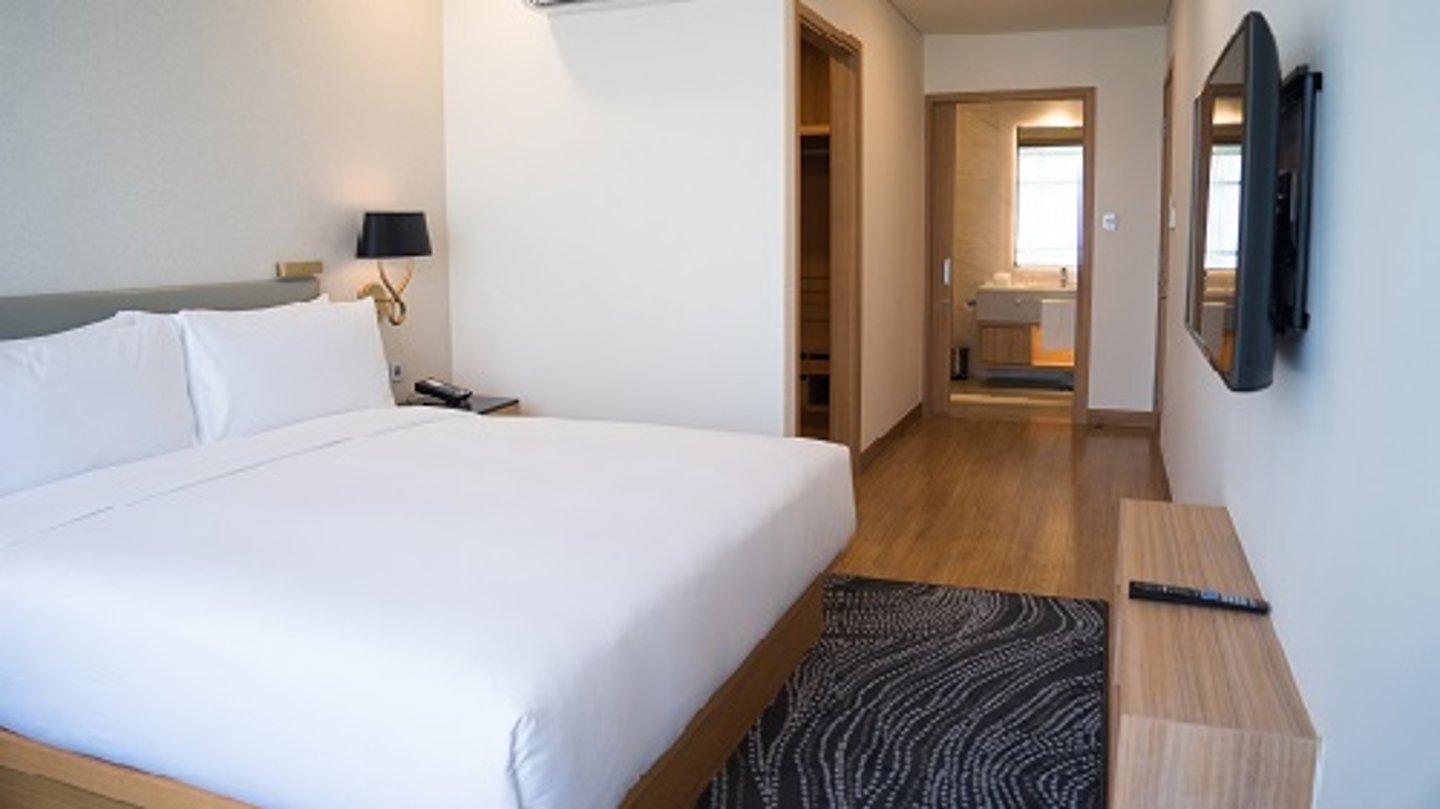Indoor Air Quality: What’s Next for Hotels?
In the midst of a pandemic, bettering indoor air quality (IAQ) has never been more important. Not only is cleanliness a big component of meeting guest expectations, but it also is something that guests now demand as a result of the COVID-19 pandemic.
When thinking of cleanliness, most people are initially inclined to focus on surfaces that people are routinely touching, such as self-check-in kiosks or coffee makers. However, focusing on clean air should also be just as important – if not more important. We are all breathing the same air when indoors. Oftentimes, the air circulating within a building is contaminated because of poor ventilation and a lack of proper filtration. The pandemic has made the public aware that stagnant air can lead to quicker spread of viruses and bacteria.
Let’s break down some of the leading causes of poor indoor air quality in the hospitality industry, as well as the current and future outlook for air purifiers.
Common Poor IAQ Factors
There are many factors that contribute to poor indoor air quality, many of which can lead to unsatisfied guests. For example, unwanted odors near pools, bathrooms and kitchens can cause guests to leave negative reviews. Allergens, including pollen and dust, can even lead to guests feeling unwell.
[Hilton São Paulo Morumbi Installs ActivePure Technology to Ensure Guests' Health and Safety]
Another factor leading to poor indoor air quality are Volatile Organic Compounds (VOCs). Cigarette smoke, pesticides used in landscaping and paint on the walls are all considered VOCs that can cause a wide range of health effects, including eye, skin and mucous membrane irritation. While most people aren’t greatly impacted by low amounts of VOCs, those with asthma can have a moderate to severe reaction.
Unfortunately, HVAC systems can’t be fully trusted to take care of these issues. In fact, studies have shown that ventilation systems have contributed to infectious disease transmission – like COVID-19 – in areas of high risk, such as hotel lobbies, business centers and dining rooms, due to low air exchange rates, poor maintenance and lack of HEPA-grade filters. This is why hotels are turning to air purification technology to help keep guests healthy and satisfied.
The Present State of IAQ
In 2018, 28% of hotels offered allergy-friendly rooms, and at least 11% of hotels provided air purifiers in guest rooms, according to American Hotel & Lodging Association’s 2018 Lodging Survey. Now that we’ve seen the impacts of poor indoor air quality with the spread of COVID-19 alone, we expect to see these numbers go up.
Over the past year, we’ve seen a variety of hotels and hotel chains announce their rollout of air purifiers. If your hotel hasn’t yet implemented air purifiers in individual guest rooms or common spaces, like lobbies, there are a few key components to an air purifier to consider.
HEPA filters have been proven to have a great impact in reducing pollutants and unwanted particulates from the air. In fact, medical-grade HEPA filters can remove 99.97% of pollutants from the air without releasing harmful compounds. When evaluating a particulate filter used in an air purifier, ensure that it is up to HEPA standards and will clean the air effectively. HEPA filters will do a great job of capturing larger particulates, but will not capture VOCs. To remove VOCs, you will need an air purifier with additional technology.
In addition, UVC sanitization can disinfect the air within minutes to eliminate harmful germs, bacteria and viruses. Having UVC in addition to a HEPA filter provides double the safety measures in keeping the air clean and safe – especially when someone could unknowingly be sick.
The Future of IAQ
So, where is the technology to improve indoor air quality headed? While the current technology in air purifiers today is effective in keeping guests safe, researchers are finding ways to make the air purifiers even smaller with quieter fans. While the most efficient modern air purifiers are still in standalone units, there is also research happening to put the same technology into existing air vents, increasing the aesthetics in public places by reducing visibility.
While currently less than a quarter of hotels today use air purifiers in hotel rooms, this number is sure to increase as technology continues to be developed. The safety and comfort of guests come first, and better indoor air quality through air purifiers is a part of the solution to achieve ultimate guest satisfaction.
About the Author
George Negron is the Vice President of Customer Relations and Operations at Timilon Corporation based in Bonita Springs, Florida. As an indoor air quality specialist at EnviroKlenz, Negron is an expert on general indoor air quality issues and solutions in the hospitality industry.

